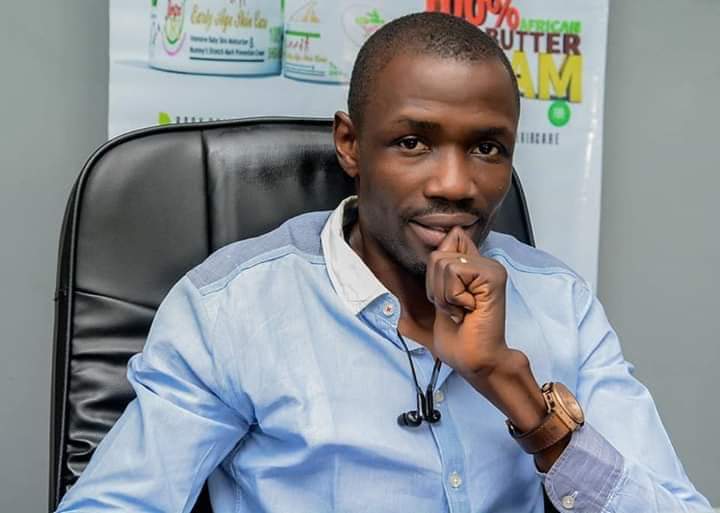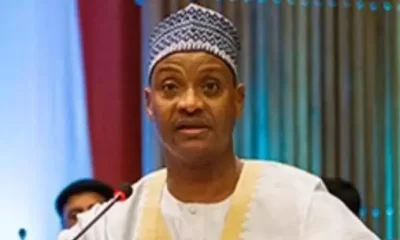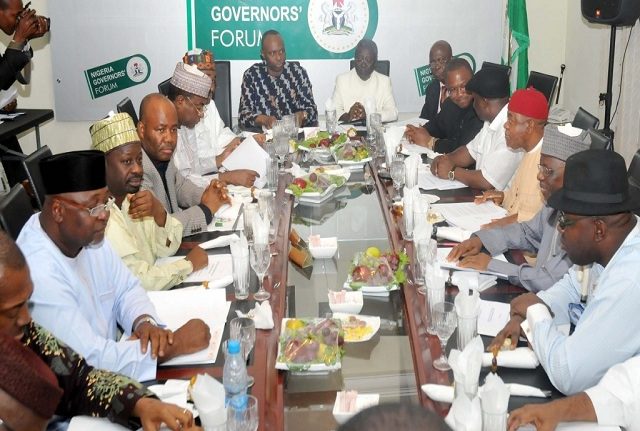Agriculture
Addressing Food Insecurity For Sustainable Growth In Nigeria -By Temitope Amujo

As part of my ambition as an alumnus of the Tony Elumelu Foundation and scholar of the prestigious Enterprise Development Centre of Pan Atlantic University, Lagos Business School, to be an instrument of Africapitalism as envisioned and instituted by my mentor Tony Elumelu. I will like to quickly draw some insights from these three quotes I came across today, in the quest for searching deeper into food insecurity and Africa development; hoping that some people in place of authority, NGOs, CBOs, and even some social workers can pick one or two things from it and perhaps someone out there can see some viable business ideas along side.
Please do not hesitate to share if you read to the end!!!
Quote 1: “Availability of land is not the same as being able to use it”
My Interpretation: Nigeria having large expanse of arable land, may not mean we can produce food for our local consumption not to talk of global food market, this is because a huge percent of our arable land are not cultivable (some not cleared, so many over used).
Quote 2: “Famine implies starvation but starvation is not famine”
My Interpretation: Now that we are being starved of the kind of food we need, means we are approaching famine.
Quote 3: “Starvation implies poverty, but poverty may not be starvation”
My Interpretation: If we don’t quickly address the issue of starvation, there could be the tendency of increased poverty in the country.
These quotes are mind opener to me as we relate it to prevailing food insecurity in my dear country, Nigeria. You may wish to know that food insecurity in my opinion, is not when you are poor and don’t have food, but when you are rich and you could not get the food you need or you have to work more harder, to earn more income before you can buy that specific food you desired, all because the prices of food is increasing.
The number of undernourished people in Nigeria is increasing drastically. According to data from 2019 Global Hunger Index (GHI), Nigeria with a score of 27.9 was ranked 93rd out of 117 qualifying countries. This implies that Nigeria suffers from a level of hunger that is serious and alarming (GHI, 2019). SEE IMAGE!
Today, I had the opportunity of interacting with academia, researchers and policy makers across the globe on how we can sincerely address food insecurity in Nigeria and other Sub-Saharan countries in Africa without unnecessarily overburdening the deficit budget of our governments across the continent.
It is was discovered amongst other things that Addressing Food insecurity is not just a paper work, it is not just about approving and disbursing credits to farmers, it is not just about distributing inputs, it is not even a farmer-farming things alone, as majority of us may think. It is a holistic macroeconomic issue that needed to be addressed from the perspective of Food Production, Livelihood, Accessibility, Entitlements, Exchange of Value and Distribution.
So, it was resolved that every economy that needed to sincerely address food insecurity as a potential tool for economic development should adopt the Sustainable Livelihood Approach (SLA).
The SLA shows concerns for how food is produced, the vulnerability of all actors in the value chain, availability and affordability of food to all irrespective of your status.
The bottom line is that food insecurity is not just about scarcity of food or the inability to afford it. There are fundamentals that must be addressed such as livelihood of the populace, interest rate, inflation rate and even wage rate.
The issue of food insecurity is a global challenge that if not addressed now could be a menace and threat to global development, because of the interconnectivity and the contagious nature of the global economy.
This post is to create awareness for policy makers in Sub Saharan African countries to learn from, while we at micro level also plan to pay attention to how we KNOW, GROW AND ENSURE EQUITABLE DISTRIBUTION OF FOOD.
KnowingFOOD, means we must know the type of food we needed and ensure we eat healthy.
GrowingFOOD implies that we should not compromise the fact that the population of Nigeria requires that more land be cleared for agriculture and not just approving seemingly handout schemes for farmers in the name of empowerment.
Equitable Distribution of FOOD, emphasis that the global food system should reduce food wastage by some elite member of the society and ensure strategies are in place to ensure equitable distribution of food such that people done have more than the food the need. Never waste any food (is someone swing an opportunity in this).
Above all, I am feeling positive that Nigeria have all it takes to fight food insecurity if our leader can just create enabling environment for the global food security plans be integrated into our ecosystem and allows Society groups, NGOS, CBOS and DFI handle the process to avoid any form of misplacement of priority, sincerity of purpose and conflict of interest, which is more prevalence in the public space.


















